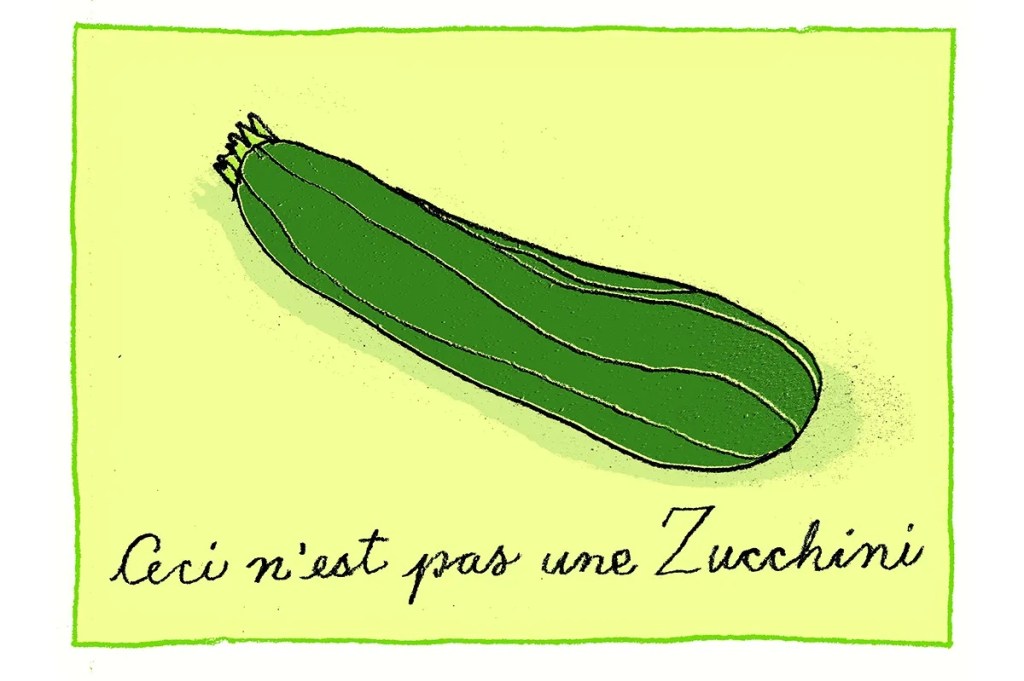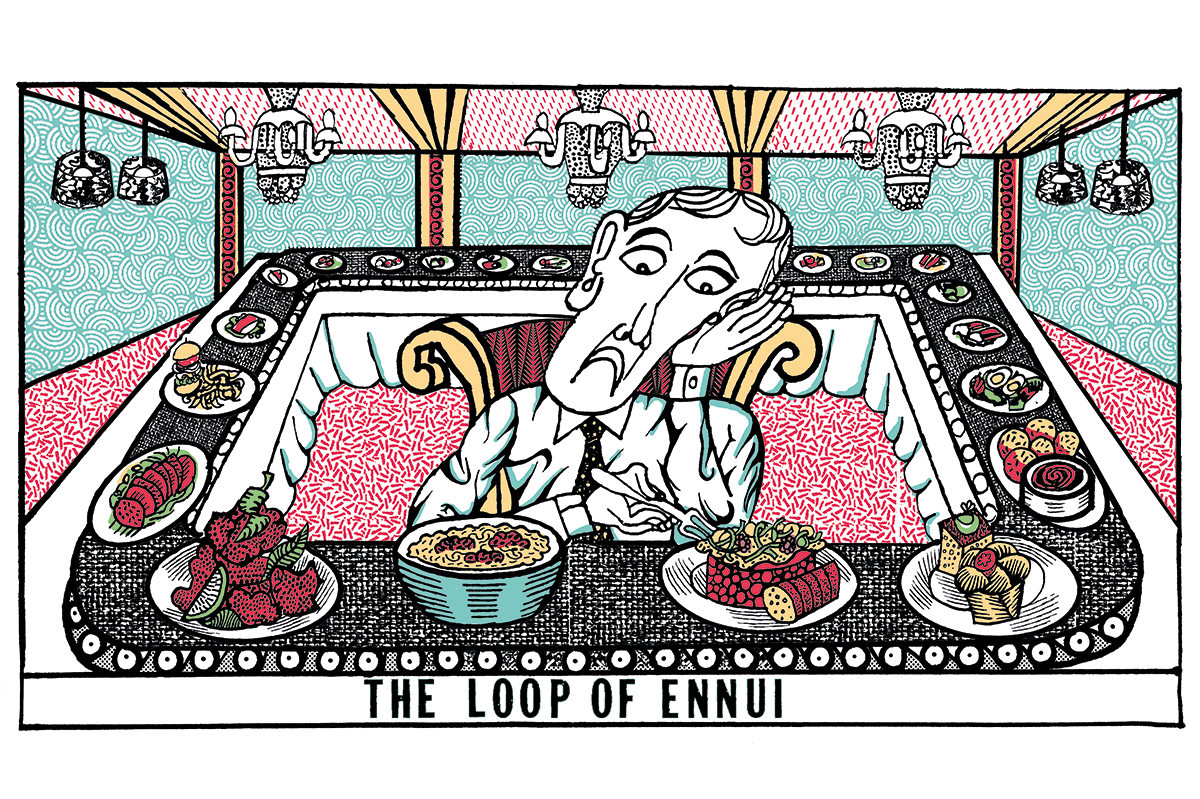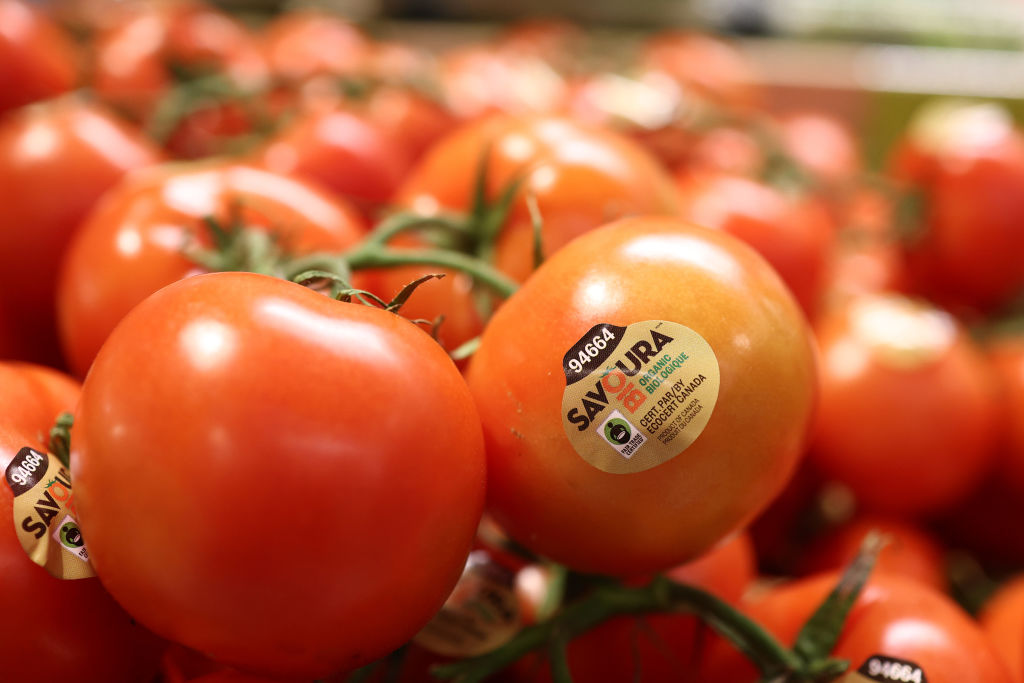Véronique arrives 45 minutes late, a vision of practiced nonchalance and rustic affectation in a loose-fitting linen smock dress, clutching a wicker basket suspiciously devoid of wear. She regards my zucchini seedlings with mild distrust and incredulity, the way the French eye giant Spanish strawberries when they first start appearing in the local supermarket. The plants’ robust stems and glossy leaves look almost too healthy, especially given their minuscule nursery pots. Something is amiss.
“C’est bio, ça?” she asks, though her tone suggests this isn’t really a question –more an ideological verbal tic than a genuine inquiry into my choice of potting mix.
“Ben oui!” I smile with the practiced ease of a man who has told this particular lie many times before.
It might seem simpler to tell the truth, but it’s not. Véronique has already mentally catalogued these seedlings as part of her grand plan to become the village’s organic gardening maven. She moved here a few years ago from Lyon – one of a closely-knit gaggle of mollycoddled urban underachievers who’ve discovered that Grandma’s inheritance goes a lot further if you drift deeper into the south than the Instagram-worthy villages of Provence. Her front-facing terrace sports Tibetan prayer flags that flutter conspicuously above the quiet street, along with a lemon tree held hostage in an undersized terracotta pot.
The truth is rather more complicated than “bio” (organic). These zucchini seedlings have never touched soil. They’ve spent their entire existence under LED grow lights in a fabric “grow tent” located in my basement, their roots threading through coconut coir – a soilless growing medium that’s harvested and processed in southern India and Sri Lanka, desalinated with industrial quantities of fresh water, soaked in calcium nitrate, then washed again, dried, compressed and shipped halfway around the world to end up in my indoor plant propagation set-up.
While it’s easy to argue coco coir has better ecological credentials than European peat, it still requires considerable industrial processing and long-distance shipping to reach our gardens. Plant nerds adore it for its remarkable ability to hold water and air simultaneously – a veritable Shangri-La for roots. Also, unlike compost-based soil mixes, sometimes teeming with fungus-gnat eggs, coco coir provides a sterile, nutritional blank canvas that I can control precisely. Irrigate regularly with carefully calibrated mineral nutrient solutions, combine with optimal light spectrums on timer-controlled schedules, and – hey presto – my seedlings emerge like steroid-pumped athletes.
Véronique is no doubt already envisioning herself proudly strolling through the village market with baskets overflowing with organic, heirloom, open-pollinated homegrown produce. What she doesn’t realize, however, is that she has volunteered to be my unwitting scientific assistant, neglecting the surplus plants I can’t simply throw away. She takes the remaining seedlings (the French are always giddy for freebies), and I chuckle to myself, wondering how many days they will survive. Their fate is an outsourced control study in botanical neglect.
Sure enough, she intercepts me in the street a few weeks later, squinting in that inscrutable French way that signals something between concern and passive-aggressive indictment. Her zucchinis, she announces, have fait de drôles de têtes –pulled funny faces – before promptly collapsing. I feign surprise, as though these pampered indoor princelings might somehow thrive when plugged directly into her garden’s dry, lifeless dirt – a Saharan dust that’s seen neither compost nor compassion in living memory.
She planted them beside the municipal parking lot, in a patch that might once have served as a sandpit for local cats, but any organic matter disappeared long ago. To underline the specificity of her failure, I inform her that my zucchinis are thriving in coco coir-amended, guano-enriched, heavily mulched goodness.
Did she even water them? “Mais bien sûr,” she claims, which means once, perfunctorily, using wine dregs. “I joost let zee nature doo zee work,” she asserts in valiant English. This, I suspect, is what “organic gardening” has come to mean for the plastic hippies – as I affectionately call them – in these parts: not really working with nature, but abdicating responsibility entirely and calling it a “philosophy.” If I were more openly cruel, I’d hit them with a weaponized quote from Camus: “People are more inclined to accept philosophies that justify their lack of courage.”
Especially when said “courage” involves filling and lifting a watering can. Véronique remains suspicious of my generosity, but she still can’t figure out why. And yet, she’ll be back next spring, none the wiser, asking if I have any more of those “bio” seedlings. And I will smile. And I will lie again.
This article was originally published in The Spectator’s August 2025 World edition.


























Leave a Reply